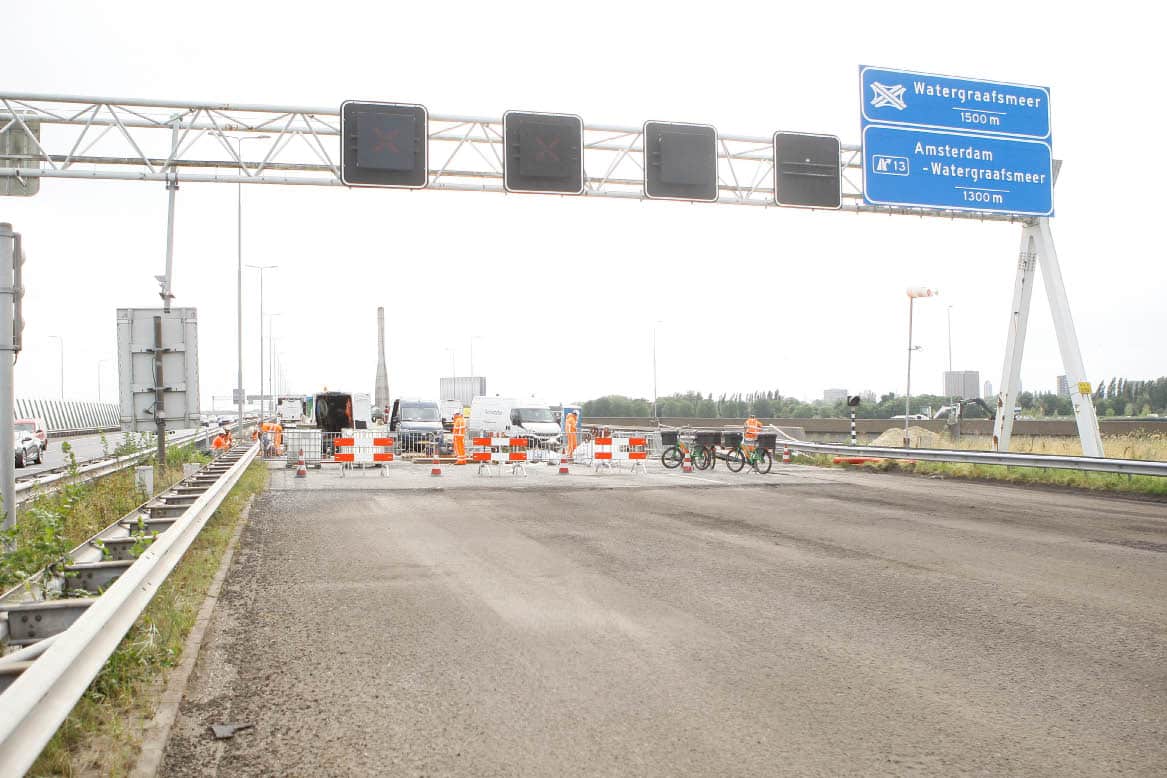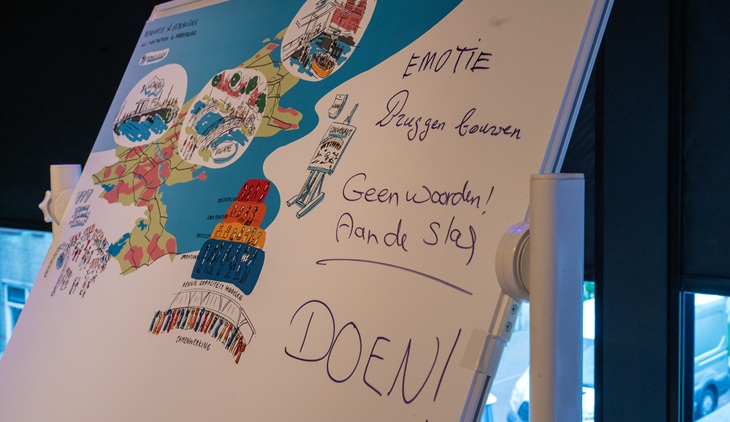The Pipeline: Infra performance dives, DIF’s new Italian job, CIP plans new IPP

- by maurya18@gmail.com
- April 8, 2024

First look
Infra performance takes a dive
Last year’s fundraising travails are well-documented, but it seems that some of those who have raised capital and invested it are also struggling to find fortunes.
That’s according to McKinsey & Company, which recently published its Global Private Markets Review 2024. The report noted the “exceptionally challenging” fundraising year but also noted that the pooled net IRR for infrastructure funds from Q1-Q3 2023 was 3.1 percent, according to data from MSCI Private Capital Solutions, below what it said was a historical median average of 10.1 percent. For comparison, the pooled-net IRR for Q1-Q3 2022 was 8.7 percent.
“The lower performance is largely attributable to declining asset valuations, as the long-dated fixed cashflows that characterise many infrastructure investments became less valuable in a rising-rate environment,” McKinsey explained.
Beating the drum for core infrastructure? Perhaps not, but certainly for a return to core characteristics.
Down the drain?
Kemble Water, the parent company of troubled UK utility Thames Water, has defaulted on its debt, a further escalation in what has become an unpleasant scenario for both the firm’s shareholders and the UK government.
Shareholders – which include OMERS, the Universities Superannuation Scheme and the Abu Dhabi Investment Authority – last week declared they would not inject any further equity into the company as long as regulator Ofwat was unwilling to meet their demands.
This was followed late last week by Kemble Water sending a formal notice to creditors that it would not be making scheduled debt repayments this month. The Financial Times and Sky News reported last week that Chinese state-owned Bank of China and the Industrial and Commercial Bank of China are among the lenders to Kemble, alongside ING and Allied Irish Banks.
The firm said in a statement that it had requested its lenders “take no creditor action so as to provide a stable platform while all options are explored with all key stakeholders”.
With the nuclear option of a default now enacted, the prospect of a significant restructuring of Thames Water and its parent Kemble Water – or even renationalisation of the business – appears to have become significantly more likely.
Stormy waters ahead look certain.
Back to the mid-market for Warren
Warren Equity Partners, a US-based manager focusing on infrastructure solutions, has closed a second offering under its ELIDO lower mid-market strategy, affiliate title Buyouts reported.
ELIDO Fund II, launched last fall, announced last week it had reached its $550 million hard-cap with the backing of new and existing LPs. The vehicle exceeded an initial target of $450 million. ELIDO Fund II follows last year’s closing of the manager’s latest flagship fund, Warren Equity Partners Fund IV, at $1.4 billion.
Warren invests in buyouts, carve-outs and recaps of companies providing mission-critical products and services to infrastructure end-markets. The firm was a “first mover” in its space, managing partner Steven Wacaster told Buyouts, targeting thematic opportunities in businesses that maintain, operate and upgrade infrastructure in core sectors.
Warren seeks PE-style returns from investing in “dynamic operating businesses in stable markets”, Wacaster said, that can be grown organically and through M&A. To date, Warren has made 28 platform investments as part of 124 transactions completed in total.
Its latest small-cap deal, done in January by ELIDO Fund I, backed Southeast Lineman Training Center, a vocational training services provider for utility and communications lineworkers. Warren’s most recent flagship investment, made in early 2023, was Ovation Holdings, a distribution and maintenance, repair and operations services provider to the flow-control and instrumentation markets.
AEW dials into infra debt
Real estate asset manager AEW Europe will team up with Japan’s SBI Shinsei Bank as it expands into infrastructure debt with the launch of the SS Capital Digital Debt Fund.
The fund will focus on high-speed fibre networks, telecommunication towers and data centres across Europe. AEW declined to disclosed a target size for the fund.
Its launch comes months after AEW hired former BlackRock head of infrastructure debt for Europe, Jonathan Stevens, to take on AEW’s new role of head of private debt.
Stevens said AEW is committed to expanding globally while meeting the needs of Asian investors.
“I look forward to working with SBI Shinsei Bank and to providing this leading Japanese financial player with our international and comprehensive expertise in the private debt field,” he said in a statement.
AEW’s private debt team, which has €7.4 billion in client commitments, has €3.3 billion already invested across corporate, infrastructure and real estate debt funds.
Grapevine
“What keeps me up at night is the winter of 2032. It feels like that’s a long way away, but that’s like tomorrow”
Richard Dewey, CEO of New York’s grid operator NYISO, at a conference sponsored by the Electric Power Supply Association, sweats about blackouts caused by extreme weather events.
Who’s hiring
CDP’s Battaglia to head DIF’s Milan office
Netherlands-based DIF Capital Partners has tapped infrastructure veteran Roberta Battaglia to head its new office in Italy.
Battaglia joins from Italian sovereign wealth fund CDP Equity where she served as head of infrastructure for the past four years, leading on deals such as the Autostrade per l’Italia transaction, which closed last May, with CDP Equity, Blackstone and Macquarie Asset Management acquiring an 88.06 percent stake in Italy’s largest motorway operator.
Before joining CDP, Battaglia spent 10 years at Paris-based Antin Infrastructure Partners as an investment director.
The move is a result of the “increasing number of interesting investment opportunities across our key target sectors”, DIF CEO Wim Blaasse, said in a statement, referring to the energy transition, digital infrastructure and sustainable transportation sectors the firm invests in, while also enabling DIF to better serve its growing base of Italian LPs.
The expansion comes eight months after CVC Capital Partners announced it would be acquiring a majority stake in the Dutch asset manager for a reported €1 billion. The deal is expected to close in Q2.
LP watch
Dutch pensions demand energy transition engagement
Five of the Netherlands’ largest pension funds – ABP, PFZW, PMT, Bpf Bouw and PME – have called on the incoming Dutch government to engage in closer co-operation to advance the energy transition.
They want a national investment institution to lead a closer collaboration between pension funds, municipalities, network companies and other government agencies to realise better heat and electricity networks. As well as long-term stable returns, of course.
PPPs and guarantees should be encouraged, and a national investment institution, such as the innovation fund Invest-NL, should oversee developments and bridge the gap between government and pension funds, according to the open letter.
The Netherlands is still without a functioning government, but the pension funds are asking the coming cabinet to provide an ambitious and reliable government policy, and engage with CO2 pricing and green tax measures as well as innovation.
Always good for a new minister to know that they’re wanted for something.
Deals

CIP’s planned IPP
Copenhagen Infrastructure Partners has acquired a majority share in Elgin Energy, an international solar and storage developer, for an undisclosed amount. The investment comes from the firm’s fifth flagship fund, Copenhagen Infrastructure Partners V, which was launched in 2023 and is currently in market seeking €12 billion.
The terms of the deal include an agreement between Elgin and CIP to retain Elgin’s management team and invest £250 million ($315.9 million; €291.6 million) into Elgin’s pipeline of projects.
The goal of the acquisition is to use CIP’s procurement and construction background to advance Elgin’s goals of becoming an independent power producer, growing its team and pipeline and developing a fully-integrated, full-service solar and storage company.
While Elgin has developed nearly 2GW of capacity to date, it said it has a 15GW pipeline of solar and storage projects across the UK, Ireland and Australia.
Certainly full of promise, at least.
Today’s letter was prepared by Zak Bentley. Kalliope Gourntis, Anne-Louise Stranne Petersen, Isabel O’Brien and Tom Taylor also contributed.
The Latest News
-
December 25, 2024Sport 2000 brengt Absolute-concept naar Nederland – RetailNews
-
December 24, 2024Consultatie van CSRD-implementatiebesluit voor accountants gestart
-
December 23, 2024Erik Wennekes Nederlands Kampioen Topklasse libre
-
December 23, 2024Wordt regio Ede of omgeving het nieuwe thuis voor Carolina uit Italië?
-
December 21, 2024Bondscoach rolstoelbasketbalsters op non-actief na meldingen grensoverschrijdend gedrag





